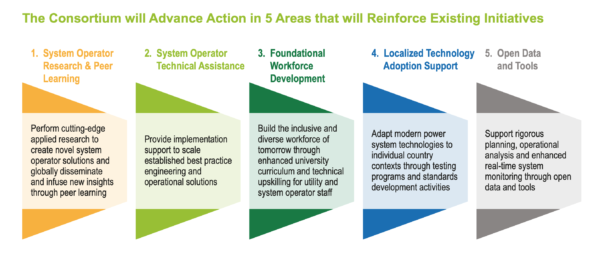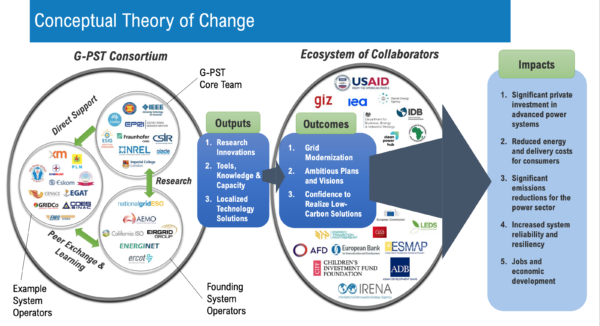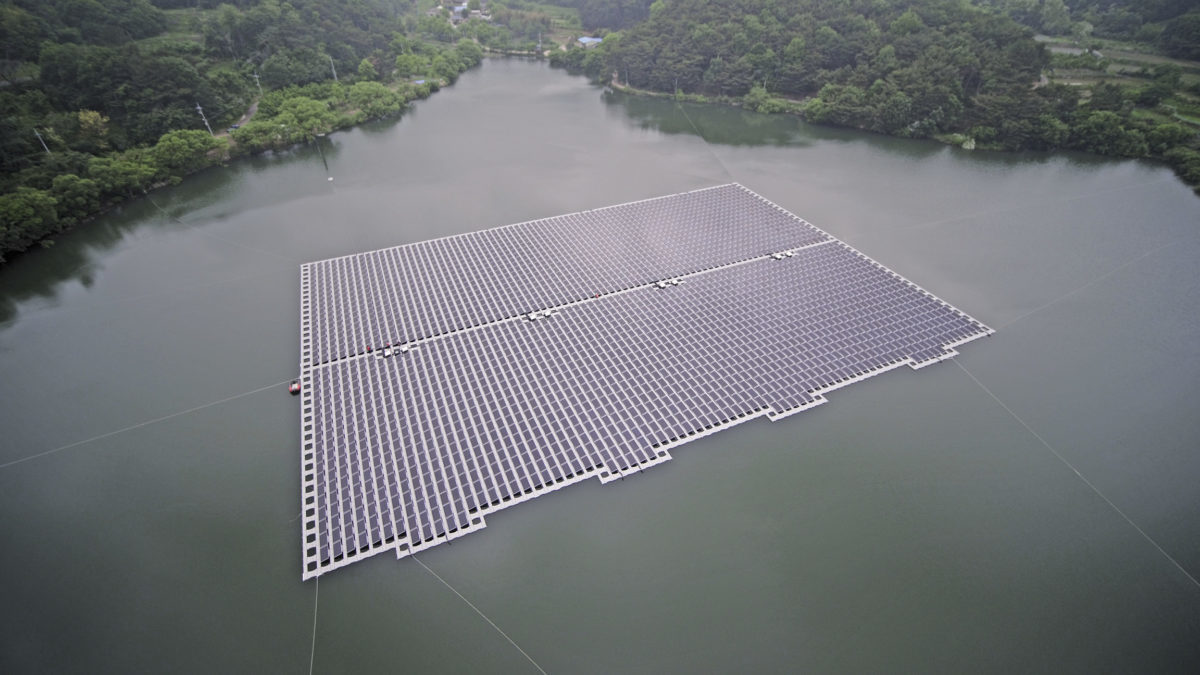The Australian Energy Market Operator (AEMO) has joined five power system operators around the world that have more than 50% renewables in their mix, in forming a new partnership — the Global Power System Transformation Consortium (G-PST) — with the mission to use their combined knowledge and resources “to foment a rapid clean-energy transition at unprecedented scope and scale”.
The announcement will be made just as Audrey Zibelman, who has for the past four years been CEO and Managing Director of AEMO, is preparing to leave the organisation at the end of the year for a role at “X — the moonshot factory”, a subsidiary of Alphabet Inc, parent company of Google.
In a statement accompanying her resignation, Zibelman said X provides her “a compelling opportunity to support the power sector both here and globally as we navigate to greater electrification of our economy and a diverse, decarbonised power system.”

Image: AEMO
In her foundational role at G-PST Zibelman was clearly aiming also to multiply the knowledge gained so far in Australia’s energy transition and help other countries leapfrog over obstacles on the road to slashing emissions.
In 2021, with funding from donors, governments and development banks, and other partners providing co-financing, the G-PST will scale up collaborative research and begin providing advisory support, technical assistance and workforce solutions to system operators in partner countries. These programs are designed to unlock more than US$10 trillion of private sector investment and move the world toward greater than 50% reduction in power-sector emissions over the ensuing 10 years.
The Consortium says that countries around the world want to move towards low-emissions energy systems, to meet a range of environmental, economic and reliability goals, but it acknowledges that there are “significant challenges in acquiring and applying the requisite knowledge to rapidly transform power systems”, and identifies “a clear need for a global consortium to overcome these barriers across all regions”.
Alongside AEMO are independent system operators from California (CAISO), Denmark (Energinet), Ireland (EirGrid Group), Texas (ERCOT) and the UK (National Grid ESO), organisations that the Global PST website hails as “champions in developing the consortium vision and activities”.

Identifying gaps in global knowledge, and sharing what we know
The first task of the team of six ISOs is to lead a Research Agenda Group, to identify common research priorities that will inform large-scale research and development investments.
The outcomes of these projects, designed to fill existing knowledge gaps and create novel system-operator solutions, will be broadly shared across Asia, Africa, Latin America and The Caribbean via regional peer-learning platforms.
Indonesia provides one example of how the Consortium and its broader partner base of development banks and research institutes — including Australia’s CSIRO, the ASEAN Centre for Energy and Germany’s Fraunhofer Cluster of Excellence Integrated Energy Systems — can provide technical assistance to system operators.
PLN, Indonesia’s state-owned electricity provider and grid system operator is seeking to modernise grid operations and improve system reliability as directed through its Java-Bali grid control centre. In this case the G-PST Consortium, in partnership with the Asian Development Bank, will support PLN’s efforts by reviewing technical documents and “providing critical insights toward the design, procurement and integration of cutting edge, renewable energy-ready grid management systems”.
Training a workforce to operate the grids of the future
Imperial College London will lead the G-PST Foundational Workforce Development pillar of activity, forming partnerships with local universities in Colombia, India, Indonesia and Kenya to develop state-of-the-art power system curricula, and identify unique workforce development needs.
Open data and digital tools are seen as critical to providing insights to system operators and other decision makers around the world who are planning for power system transformation and greater deployment of renewables in the grid.
The G-PST Consortium has already partnered with USAID and the US-based National Renewable Energy Laboratory (NREL) to further develop NREL’s open-data platform, RE Data Explorer, that provides publicly available high-resolution renewable-energy data for many countries. As a result RE Explorer will soon allow users to visualise and download solar-resource data at 10 minute intervals across the entire South East Asia region.
The coming days will see further announcements of Australia’s involvement in supporting global energy transition via the G-PST Consortium.
AEMO’s membership is testament to how a country responsible for only 1.3% of global emissions can lead in developing the technologies and strategies needed to successfully drive transition, and leverage its know-how for a global transformation.

Image: Global Power System Transformation Consortium
This content is protected by copyright and may not be reused. If you want to cooperate with us and would like to reuse some of our content, please contact: editors@pv-magazine.com.









1 comment
By submitting this form you agree to pv magazine using your data for the purposes of publishing your comment.
Your personal data will only be disclosed or otherwise transmitted to third parties for the purposes of spam filtering or if this is necessary for technical maintenance of the website. Any other transfer to third parties will not take place unless this is justified on the basis of applicable data protection regulations or if pv magazine is legally obliged to do so.
You may revoke this consent at any time with effect for the future, in which case your personal data will be deleted immediately. Otherwise, your data will be deleted if pv magazine has processed your request or the purpose of data storage is fulfilled.
Further information on data privacy can be found in our Data Protection Policy.